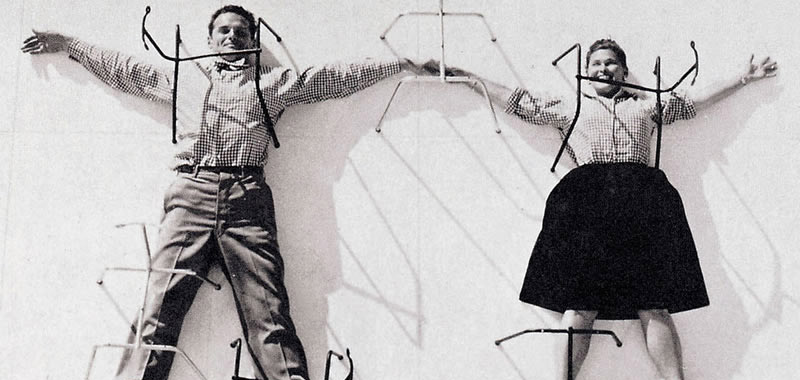
Closing the Gap: Women and Furniture Design
March 4, 2015
Muslim Women in Transition
March 7, 2015In a famous interview published in the Paris Review, Ernest Hemingway told George Plimpton that he had written the last page of A Farewell to Arms thirty-nine times before he was satisfied with it. Plimpton asked what the problem had been and Hemingway replied: ‘Getting the words right.’ Turns out though, that if you are brave enough to attempt a novel, there is a bit more to it than that – and then again there isn’t. Juliette Foster recounts her journey to get the words – and a whole lot of other stuff – right.
“Writing is a socially acceptable form of schizophrenia” – E.L. Doctorow
Doctorow might also have said that writers are gluttons for punishment who relentlessly pursue literary recognition no matter how many times they’re rejected by publishers and agents. Thank God for that bulldog refusal to not give in to self-doubt when one of those annoyingly polite ‘thanks, but no thanks’ letters finds its way through the mailbox.The literary world is paved with stories of authors who struck gold after interminable periods of uncertainty and rejection. The British author J.K. Rowling is a case in point. Reports of the numbers vary, but it’s thought that up to eight publishers turned down the Harry Potter manuscript before Bloomsbury spotted the boy wizard’s potential. I don’t doubt the truth of this as a publishing executive once admitted to me that he was one of those who binned it.
“Why did you do it?” I asked him.
He glanced at the ceiling before sheepishly admitting that Ms Rowling’s punctuation had been the problem. It was all right, but not as perfect as he thought it ought to have been.
‘So you rejected her because a couple of commas were in the wrong place?’ I said.
‘Yeah. That’s one of way of putting it I suppose.’
He gulped down the wine he was drinking and stared tragically into the bottom of the glass. It was hard not to feel sorry for him. J.K. Rowling is an exceptionally wealthy woman thanks to Harry Potter, while his bad call means the executive can only wonder how his bank account might have looked if he hadn’t been so sniffy about the boy wizard’s magic. Punctuation and grammar may seem like trivial reasons for rejecting a manuscript but in reality they’re not that bizarre. Publishers care about syntax in much the same way that employers like well-presented résumés. That’s not to say that story narrative doesn’t count. Of course it does, but poor spelling and grammar are the curse of a good novel and they can certainly influence whether a script will get published. Yet there’s no guarantee a publisher will take a manuscript even when it ticks all the right boxes, especially if its literary style is thought to be going out of fashion. In that situation, internet publishing is the obvious way out. I’ve met quite a few people who’ve gone down that road and while it doesn’t guarantee stratospheric financial success, at least the book can be accessed by a potential audience of millions – and that’s not to be sneezed at. Maybe if I had been brave enough to take that step I wouldn’t have spent seven years trying to get my own novel published.
My literary journey began in the summer of 2006 when I found myself with too much time on my hands after I was made redundant from my job as a TV journalist. Everyone assumes that journalists are naturally good storytellers because they make a living reporting real events – hence the logic that writing novels comes easily to them. However there’s a difference between telling a story in three and half minutes with a couple of sound bites, as opposed to holding a reader’s attention with a one-hundred-thousand-word script and characters who may be a combination of scheming, loving, suffering or dying. I discovered the hard way that a story plotted in the head has more holes in it than a string vest when it’s written down. Things got worse when my manuscript ballooned from 100,000 words to over 150,000 words. Six years and four major edits later, I signed with an agent who said that, although she liked my book (a quasi-murder mystery set in a television newsroom), it was in no fit state to be offered to a publisher.
‘Why?’
‘Because I’m not hearing your voice’, she said patiently.
‘I don’t understand. What do you mean?’
‘You need to talk through your main character. At the moment I’m hearing Juliette Foster, the journalist. That’s not you! It’s your voice the readers want to hear.’
It went on like this for weeks. Every time I thought I’d cracked the formula, the manuscript would be sent back with the same criticism, until she suggested that an Arvon course might yield the breakthrough we were both looking for.
As I had no idea what Arvon was, I logged onto the internet and found their website. The Arvon Foundation runs weekly residential creative writing courses from four UK centres: Shropshire, Yorkshire, Devon and Scotland. Everyone is welcome, no matter what stage they’re at in their literary journey, with published authors leading all the workshops. How many courses can boast the services of such luminaries as Carol Anne Duffy (Poet Laureate), Frances Fyfield, (Blood from Stone), and Cory Taylor (Me and Mr. Booker)? To say that I was intrigued is an understatement. I was also excited and fearful. The idea of spending a week in a nurturing environment with people whose literary aspirations were identical to mine was appealing, yet I was worried I would hold everyone back. Suppose my writing wasn’t good enough or that the novel which had taken up so much of my time was a no-hoper? I discussed my anxieties with a woman from Arvon’s London office who assured me there was nothing to worry about, as it was normal to feel this way.
Two weeks after that conversation I boarded a flight to Inverness and afterwards took a taxi to Moniack Mohr, a house and cottage nestling in the wild, stirring beauty of the Highlands. Twelve of us, (eleven women and one man), had enrolled on a course for first-time writers struggling to get their novels off the ground. Once we all got talking, I realised I wasn’t the only one wrestling with self-doubt, frustration and the uphill struggle of making a novel readable. Anna had been working on hers for more than five years and couldn’t decide whether the child or its neurotic, egocentric mother should be the principal character. Lola abandoned her novel after a family trauma and was struggling to pick up from where she had left off, while Geoff was working on a collection of short stories that lacked a unifying theme. Slowly, carefully, and patiently, our tutors, Marilyn Bowering (What it Takes to Be Human) and Kathy Page (The Story of My Face), eased us into action with writing exercises, story structure analysis, and readings of each other’s works. Afternoons and evenings were given over to tutorials, working on our novels, or simply taking inspiration from the gloriously rugged scenery. As our confidence grew, we were less bashful about appraising each other’s work or offering constructive suggestions on how manuscripts could be moved ahead. Some days were more emotional than others but that was counterbalanced with plenty of laughter and the magnificent sense of achievement when we did things which had once seemed impossible. The highlight of my five days was writing a short story – something I haven’t done since I was a teenager – about a woman who uses a cloud to commit a murder!
When the time came to say goodbye, we promised to stay in touch and to keep up with the writing. Sadly the cold dawn of reality is in danger of kicking our good intentions into dust. It’s hard to write if you’re self-employed, working five days a week, raising a family or doing all three things at once.
Having said that, we’re determined not to give up and are trying to organise an online group tutorial. In the meantime, I think I might have found my voice. It wasn’t easy, as it meant switching my novel from the third to the first person, a medium I’m not naturally comfortable with, although the change-over is getting easier.
Do I believe my novel will get published? Who knows? But in the final analysis it isn’t important. What matters is that I wrote a book, something many people would like to do but which very few get around to doing. What’s more, every word of it is mine not a ghostwriter’s! It’s taken a long time to reach this point in my thinking and I’m thankful for the ups and downs I’ve gone through to get here. I also know that at some stage I’ll be hunched over my computer, writing my script, and then swearing like a trooper when a sentence doesn’t come out right. What a prospect! But then I wouldn’t want it any other way.




